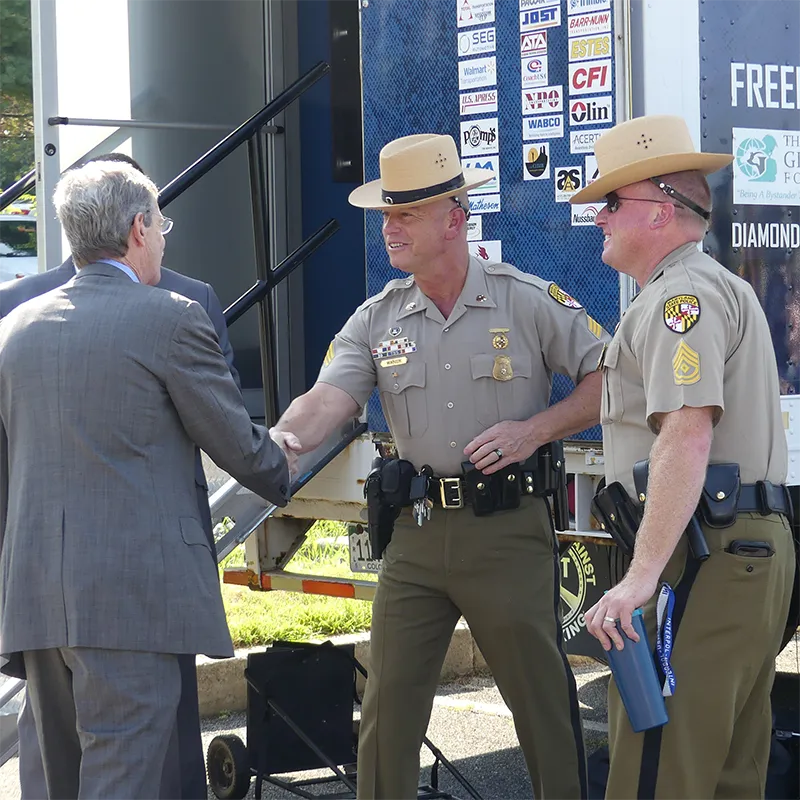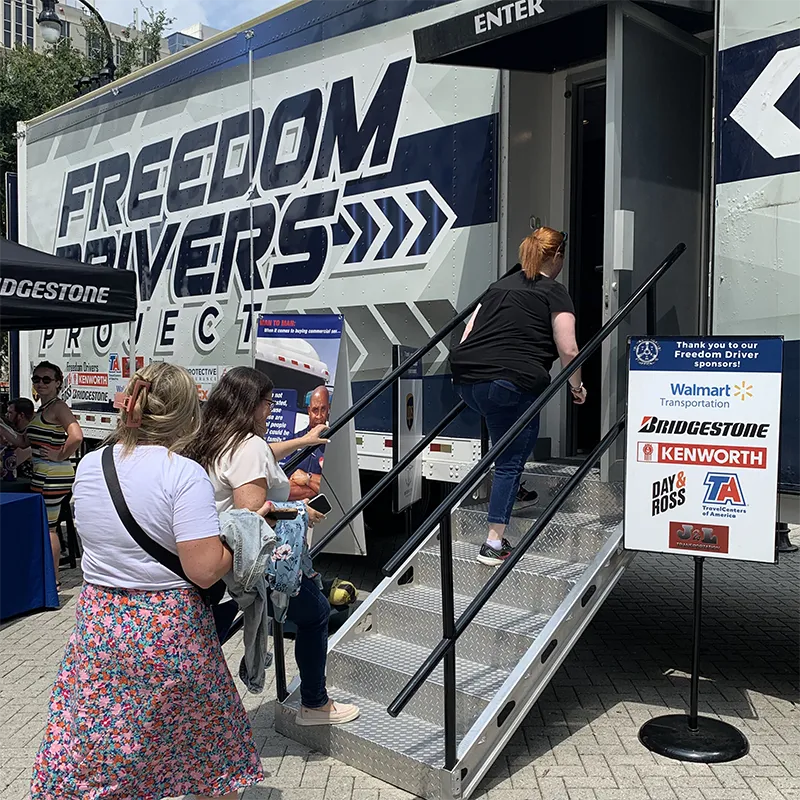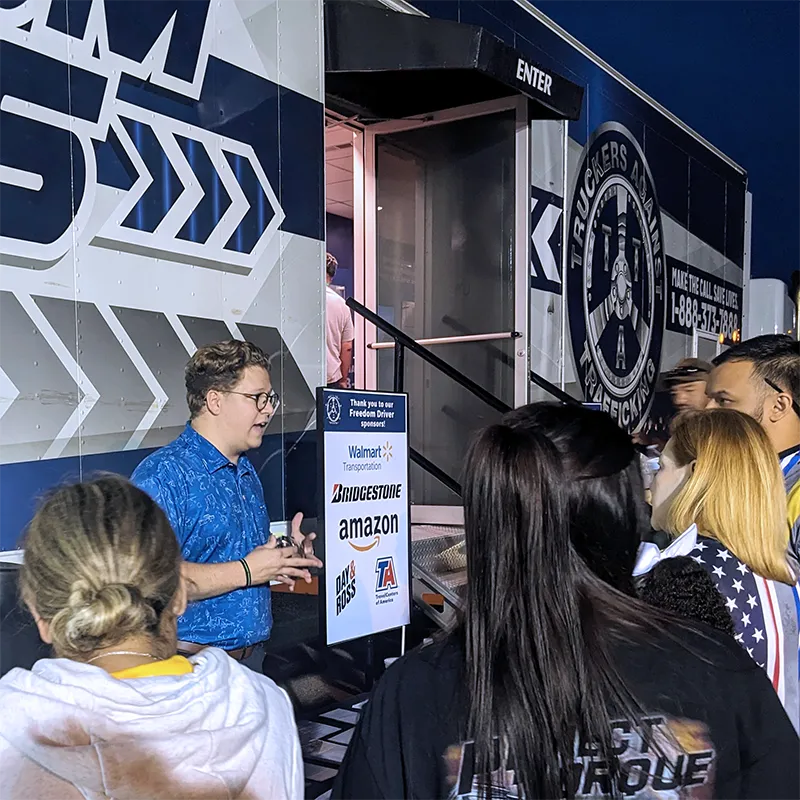Truck stop employees are strategic in the fight against human trafficking.
Traffickers exploit locations in the sale of their victims, often bringing their crime to the doorstep of legitimate businesses. By virtue of their locations and the massive transient customer base they serve, truck stops and travel centers are uniquely positioned to make an impact.
Because this crime depends on the anonymity and control of its victims, traffickers regularly transport and sell them at places that are convenient and easy to access. Beyond that, when traffickers transport their victims, they are traveling on the same roads and stopping at the same truck stops, travel centers and gas stations as everyone else, creating multiple opportunities for victim recovery.
Through TAT’s partnership with truck stops and travel centers, frontline heroes are making a difference in the lives of victims of human trafficking and helping law enforcement investigate and prosecute traffickers.
Train employees with TAT’s resources.
TAT shares its training resources – including videos, wallet cards, an app, toolkit, window decals, etc. – with truck stops and travel centers free of charge.
Nikki’s Story is TAT’s six-minute video for truck stops, sharing how the gentle kindness of one general manager helped a survivor on her path to freedom.
Distribute TAT’s materials at your locations.
TAT has victim-centered posters that can be hung in bathrooms or other strategic locations where survivors may see them, as well as materials for truck drivers that can be displayed in driver’s lounges.
Establish an internal reporting policy.
Ensure your employees know the steps they’re expected to take if they suspect human trafficking is occurring or if they believe they may have encountered a potential victim.
TAT’s Business Engagement Toolkit, created in partnership with the U.S. Chamber of Commerce, includes a sample reporting policy.
Contact TAT to get started.
Contact us
TAT in Action
Debo Adepiti, a TAT-trained travel center field manager, was making a premise check when Alan Bailey, a TAT-trained night porter, told him a young lady had recently come in dressed provocatively and he suspected prostitution. After speaking with both the driver of the van that brought her, as well as the young lady, Debo believed she was being trafficked and contacted local police.
When police arrived, they recognized one of the suspected victims from online sex ads they’d been investigating for months and arrested two men and one woman on human trafficking charges. The trio were exploiting multiple women, posting ads, scheduling appointments for prostitution, making them work without sleep, assaulting them, forcing them to perform sex acts under threat and taking their money. Law enforcement was eventually able to locate and recover 20 survivors of sex trafficking.
In 2016, TAT awarded Debo Adepiti and Alan Bailey with its prestigious Harriet Tubman Award.






